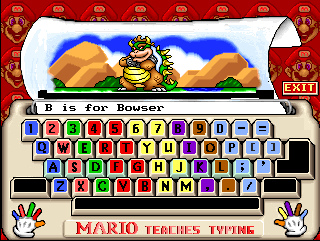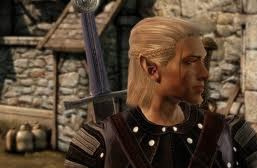
Picture yourself immersed in a new game, and so far it’s good. It plays well, has a fun combat system, and a world that’s engaging. Everything seems right. Everything seems to work.
So you play on, beat a boss, solve a puzzle, or just somehow progress the story forward when it happens and everything goes horribly, horribly wrong. It tends to be during a beautifully rendered cut-scene, when you’re marveling at the artwork and at the graphics. Suddenly…BAM! A bad line of dialogue ruins your experience forever. It feels like getting punched by a dinosaur.
We’ve all seen it before; bad writing spoils an otherwise worthy title. The dialogue is clunky and dry, the villain is comically over the top, or your character’s love interest is beyond obnoxious, and you just want them to die. Die in a fire. Pair any of these examples with bad voice acting, and any self-respecting player will just put the controller down.
This industry constantly strives for visual perfection, but it often ignores stories and spoken words. Countless games look great; technological advancements have made it very easy for things to look pretty. Most studios can create breathtaking images, but they can’t seem to tell a joke, make us cry, or get us to care about the death of a nonplayer character (NPC).
This has been the norm for years, and we put up with it. However, as Bob Dylan once said, "the times they are a-changin'." Developers like Bioware and Bethesda are hiring authors to help tell their stories, and these two companies seem to only make bestsellers. The rest of the industry is starting to catch on. People are realizing that good writing can take a decent game and turn it into one that is beyond banana pancakes awesome. This is the future.

Because of this new philosophy, video games are becoming a more valid and artistic method for telling a story. The desire to kill an RPG's entire supporting cast is being replaced by a general concern for their well-being. The urge to fling your love interest into a pool of acid is swapped for an odd attraction to the elf in the party.
Companies will find that criteria for the next generation, or "next-gen" for people who hate syllables, has changed. Graphics, playability, and all that will still be important but so will the writing. I know some people could argue that this only matters to RPGs and other story driven games but I ask: Would Portal have been as much fun without GLaDOS? Or the promise of a nonexistent cake?
The shift to this brave new world has already started. Star Wars: The Old Republic employs tons of real sci-fi writers. Best-selling author R.A. Salvatore created the lore in Kingdoms of Amalur: Reckoning.
Hopefully, as this trend continues, more conventional storytellers will work in this new medium. Imagine the possibilities…our favorite authors, screenwriters, and directors might need an interactive element to fully tell this epic new tale. That, for this world to be fully realized, the audience needs to help build it. In this glorious future, our beloved creators may find that they need to make a video game.
Steven Spielberg has already been involved in several titles. He created Medal of Honor and Boom Blox, but I hope more visionaries take the digital plunge. I want to see Neil Gaiman create a dark and beautiful virtual world. Think about how amazing a sci-fi adventure game penned by Simon Pegg and Edgar Wright would be. It seems appropriate for these fabled creators to do this eventually; in fact, Neil Gaiman has worked on a few that never got to see the light of day.
The future is now, tomorrow, and the days that follow it. So, barring any unforeseen catastrophes, video games will continue to gain more and more respect. If the writing continues to get better, our beloved medium will take its rightful place alongside theatre, fiction, and film, and it will finally be considered art. I, for one, can’t wait for the places we’ll go, the NPCs we’ll meet, and the stories we’ll live.